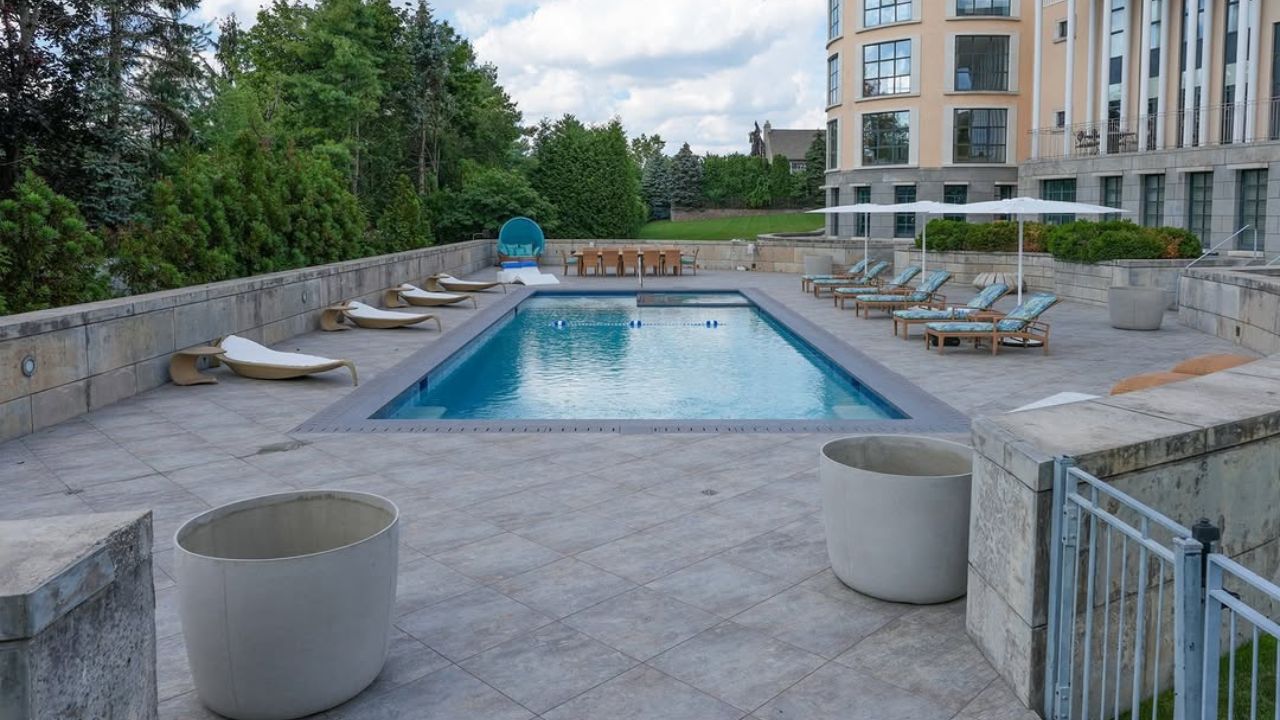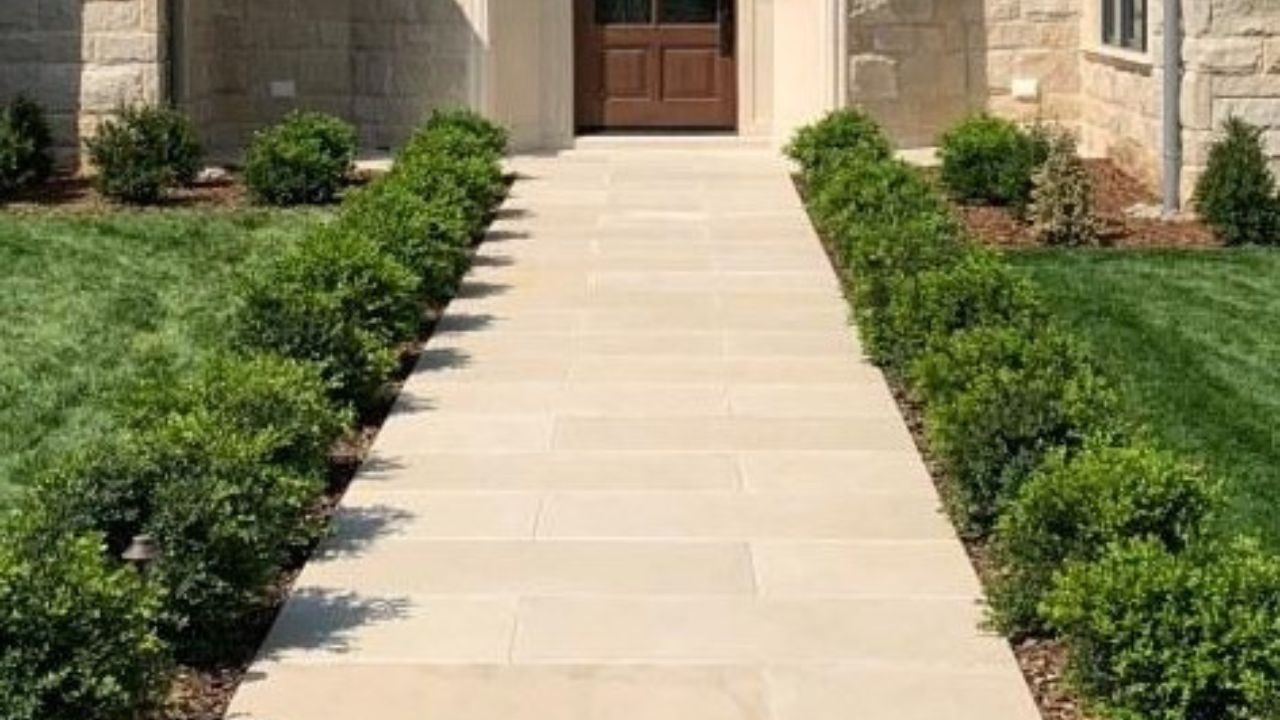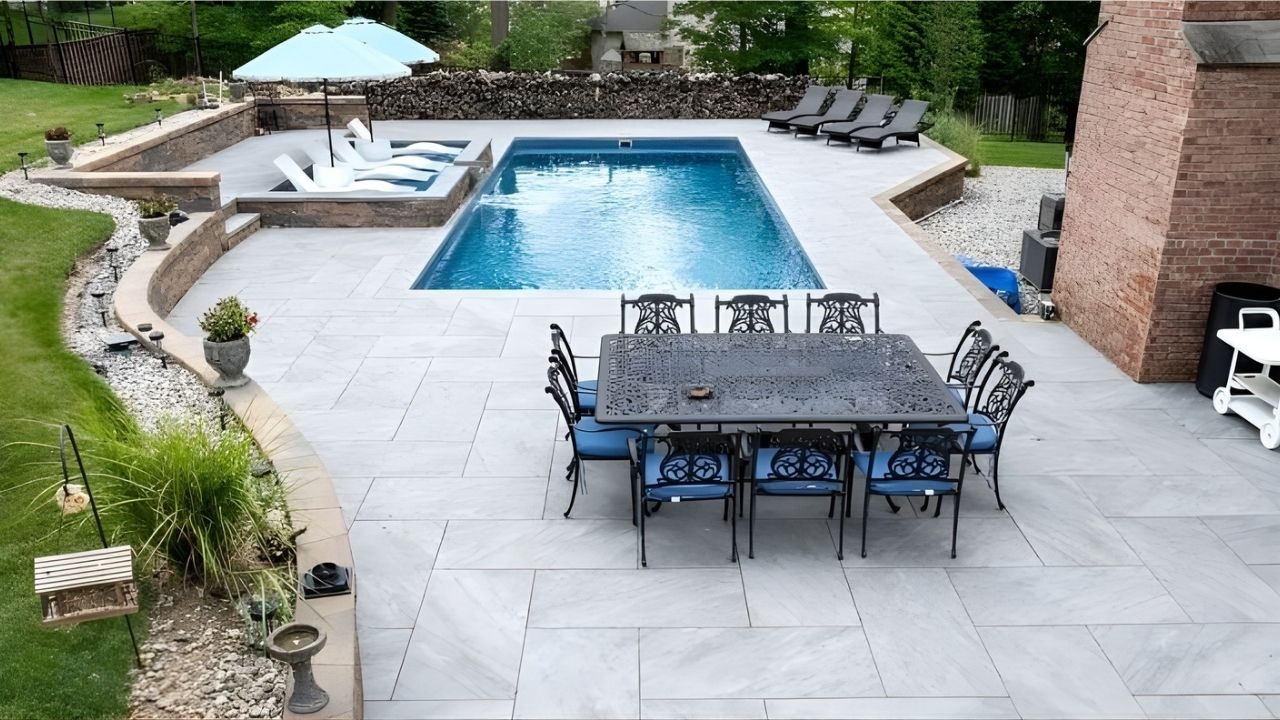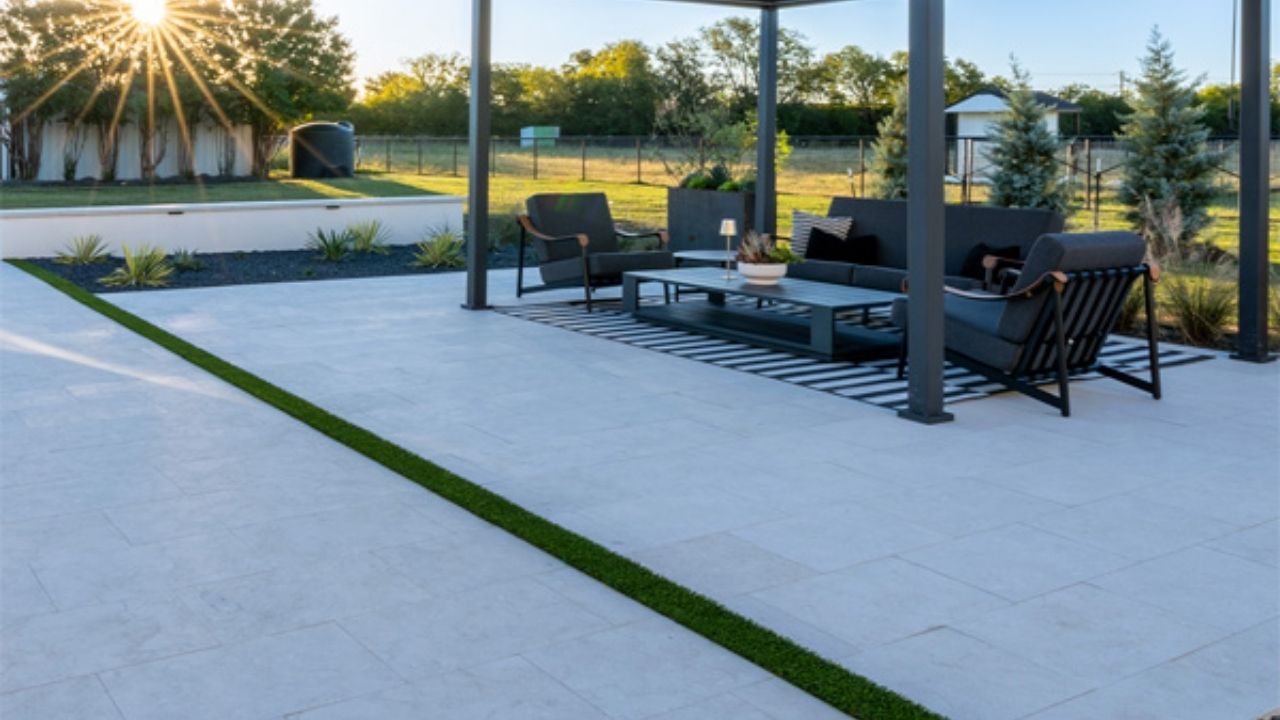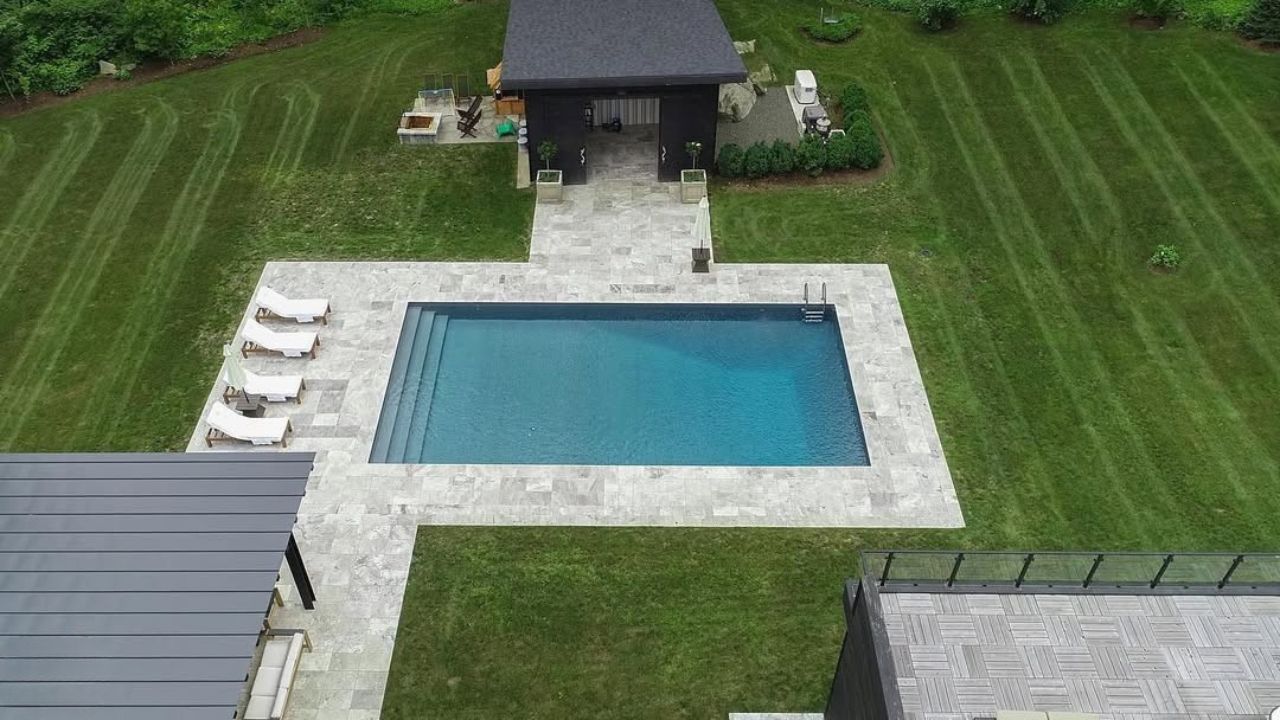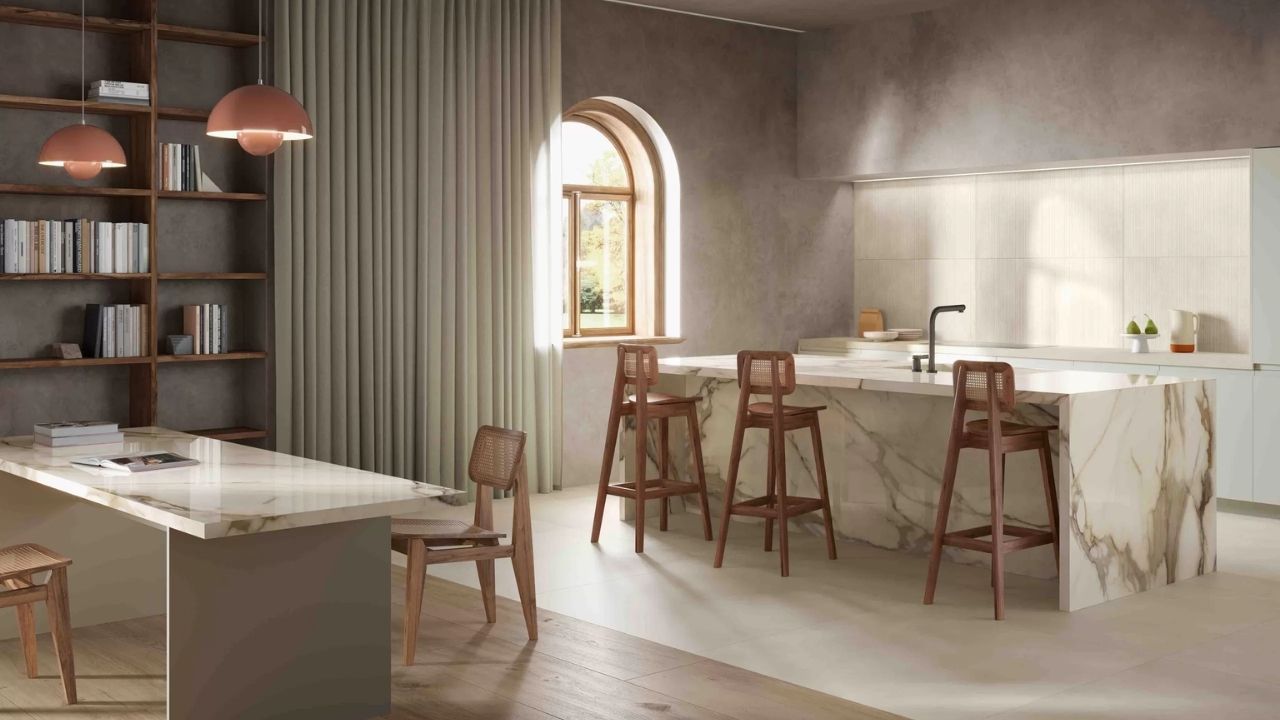Italian porcelain pavers are considered the best in class paving material with the highest rating in quality standards. While Italian porcelain tile is already an all-in-one material, its Italian variant even takes things to the next level. This is why when homeowners or project managers start their project, they ask about Italian pavers.
Italian outdoor porcelain holds a reputation built on consistent performance, design authenticity, and structural reliability. With their long history of working with porcelain for art and construction, Italian porcelain has earned a reputation. Here is what sets Italian porcelain apart from other porcelain variants.
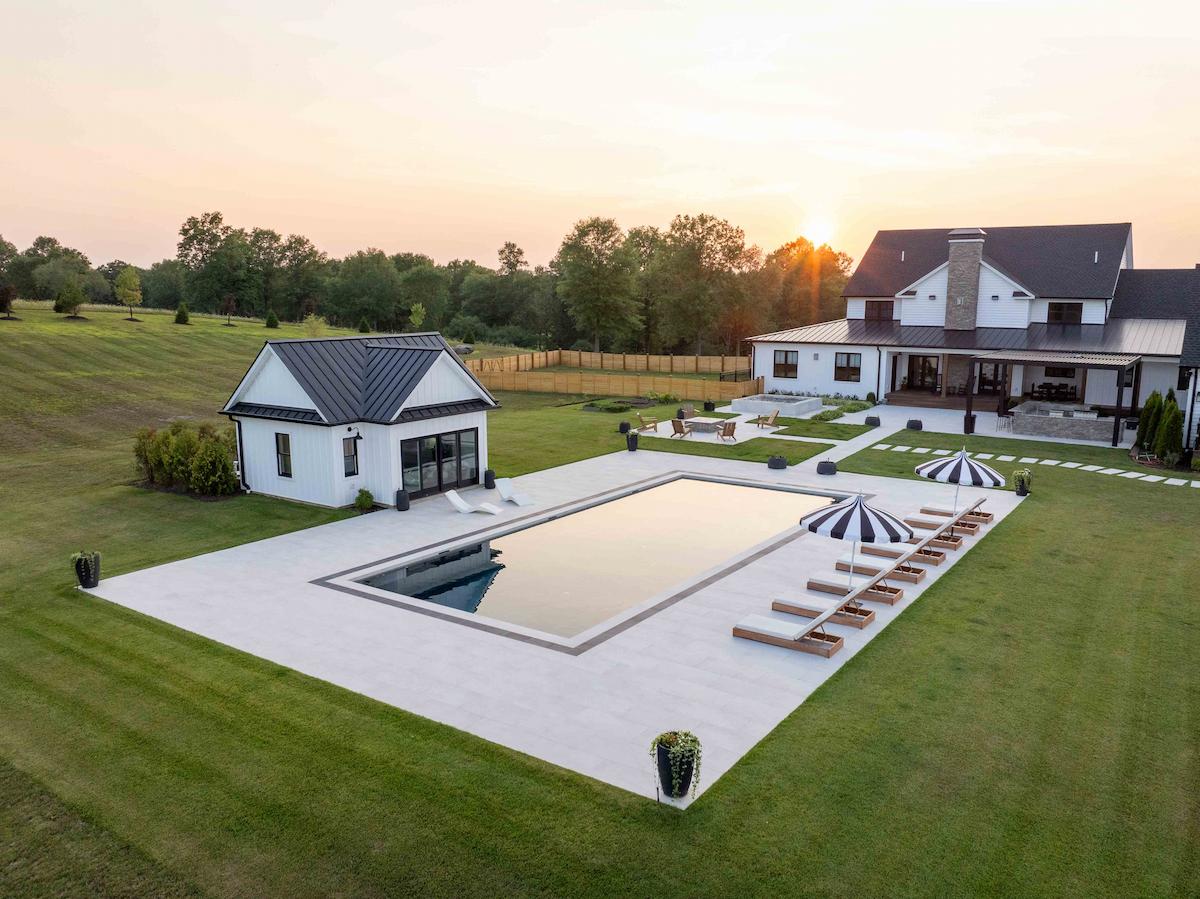
Why Italian Porcelain Pavers Stand Out?
If you also wonder why adding Italian porcelain pavers to any outdoor space gains attention, then here is what you need to know.
Strength and Density
Italian manufacturers are popular for their high-quality production methods. The Italian porcelain is no exception. They are fired at extremely high temperatures, which is over 1200°C. This process makes them dense and virtuous. It means the resulting porcelain is almost a non-porous surface with a 0.5% water absorption rate. This advanced process is seen in how porcelain slabs are made. For outdoor spaces, the low absorption indicates its resistance against cracking in freeze-thaw climates without showing wear and tear.
Surface Performance
Outdoor pavers require a dense surface to withstand outdoor elements. Scratches, stains, and UV rays damage most outdoor surfaces at a certain point, even after regular maintenance. However, Italian porcelain oavers resist all three. The high-temperature firing process hardens the surface to the degree that it withstands heavy furniture or drop impact. They rarely leave marks on pavers. Unlike natural stone, which may fade or require sealing, porcelain maintains its color and finish for decades.
Design Authenticity
One of the strongest appeals of Italian porcelain is its design variety. They have been working with porcelain for centuries. This is why the manufacturers replicate limestone, travertine, marble, wood, and concrete with excellent accuracy. This means homeowners can design their space with the authentic beauty of natural stone pavers without avoiding the maintenance issues. For project managers, it means consistent quality that mimics the look of natural stone across large orders without worrying about natural variations.
Sustainability and Responsible Sourcing
Italian factories follow strict European environmental standards. Most use recycled raw materials and water recovery systems. The focus on sustainability holds great value for modern projects. The LEED certification and green building codes have become standard in 2025.
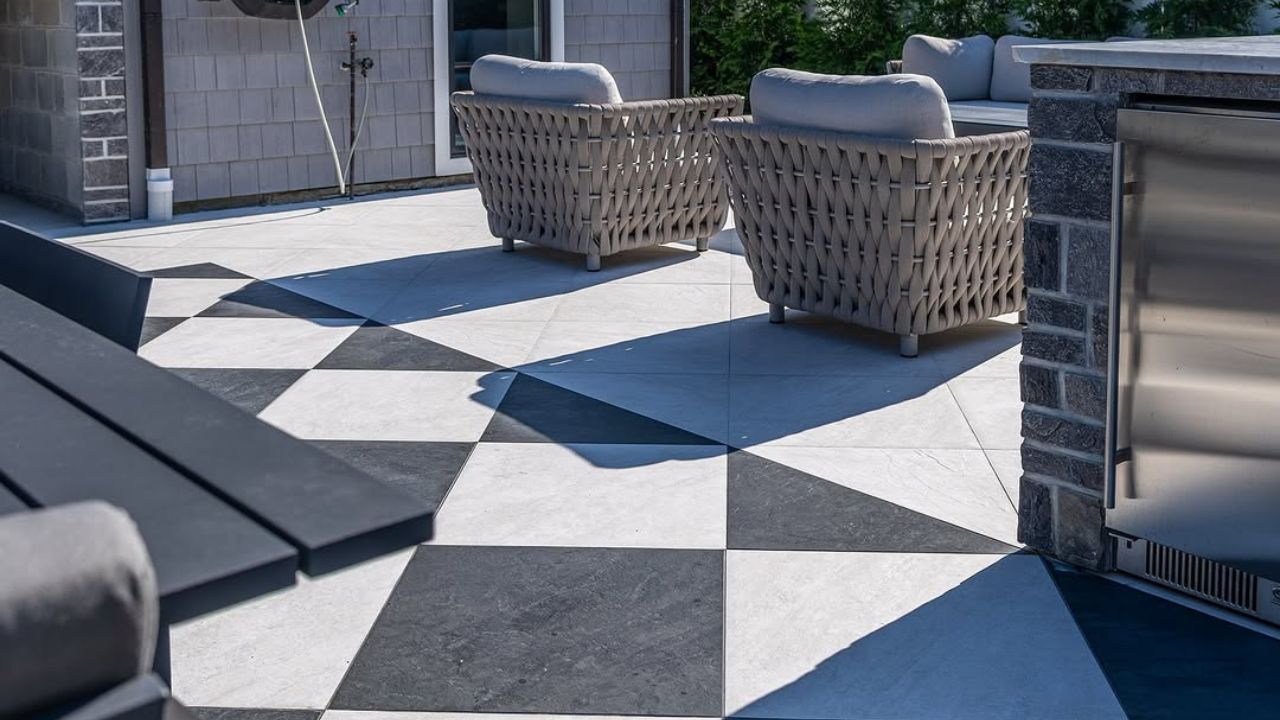
Ease of Installation
Unlike thick stone slabs, porcelain pavers are manufactured in consistent sizes and thicknesses. They usually come in a 20mm size for outdoor use. This standardisation makes the paver installation much easier, especially for those learning how to install pavers for beginners, whether placed on gravel, sand, or pedestal systems for raised flooring. Project managers appreciate reduced waste and predictable timelines.
Low Maintenance Over Time
While porcelain is known for being low-maintenance, not every porcelain variant is as low-maintenance as Italian pavers. They require little upkeep, with just occasional cleaning using water or mild detergent. If you’re wondering how to clean outdoor porcelain pavers, the process is simple and quick. Dust and dirt cannot reach under the surface, unlike concrete pavers. For homeowners, this means less time and money spent on sealing or treating surfaces. For project managers, they will not have to worry about long-term maintenance concerns and client callbacks.
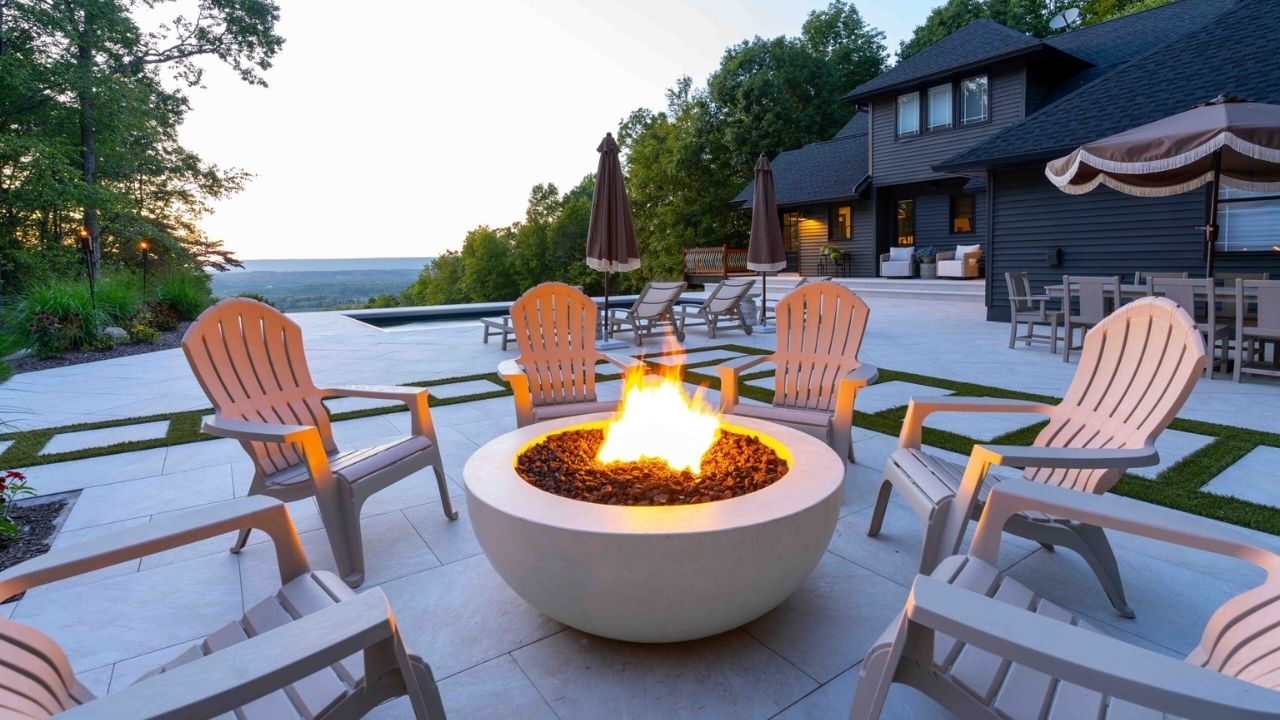
Precision Engineering for Large-Scale Projects
The Italian manufacturers work with precision and a calibrated system. Each paver has consistent thickness and straight edges. This precision makes them easier to align, particularly in large commercial or public projects. Even the small variations can cause uneven surfaces or installation delays in such projects.
Long-Term Value and Lifecycle Savings
Just like Italian marble pavers, Italian pavers may also have a higher upfront cost. However, they deliver better lifecycle value. They can last for decades without needing resealing, resurfacing, or frequent replacements. The installation may be costly, but compared to its longevity and maintenance, Italian and labor often exceed the initial price difference compared to cheaper imports or natural stone.
Comparing Italian Porcelain Pavers With Standard Porcelain, Non-European Imports, And Natural Stone Pavers
Porcelain pavers are manufactured throughout the USA. Different regions have different types of pavers and qualities of porcelain, but Italian porcelain is more popular than others. Some homeowners may prefer stone pavers, but where do they stand compared to Italian porcelain? Check the following table for more information.
| Feature | Italian Porcelain Pavers | Standard Porcelain Pavers | Non-European Imports | Natural Stone Pavers |
| Density | Very high, <0.5% absorption | Moderate, often 1% | Varies, sometimes inconsistent | Varies, higher absorption |
| Durability | Excellent against freeze-thaw, scratches, and UV | Good but variable | Quality depends on the manufacturer | Strong but prone to weathering |
| Design Variety | Wide, realistic stone and wood looks | Limited patterns | Often repetitive designs | Natural variation, but less control |
| Consistency | Strict quality control across batches | May vary between batches | Inconsistent thickness and finish | Each piece is unique, harder to match |
| Maintenance | Minimal, no sealing needed | Occasional sealing may be recommended | May require more maintenance | Needs sealing, staining possible |
| Sustainability | European eco-standards, recycled materials | Varies | Often less regulated | Quarried, high environmental impact |
| Cost | Higher initial investment, long-term savings | Lower upfront, potential replacement costs | Cheaper, may need replacement sooner | Expensive, higher upkeep |
Italian outdoor porcelain pavers stand tall against standard porcelain and stone pavers. They have higher density, better durability, and lower maintenance. Stone pavers, though, offer natural and organic charm, but they have an even higher cost and regular maintenance. This makes the Italian porcelain the best value for money paving material.
What Are The Best Application For Italian Porcelain Pavers?
You can get the most out of Italian porcelain if it is installed properly. Here are the best applications for this.
Driveways:
They can withstand heavy vehicle loads without cracking, unlike cheaper imports that may warp under pressure. This makes them the best choice for commercial projects as well.
Pool Decks:
With a honed or textured finish, you get a slip-resistant surface, which makes them safer than polished stone. Also, they do not turn yellow in sunlight or absorb chlorine.

Patios and Walkways
You can create a stunning patio and walkways with a flowy design with its consistent look. Homeowners achieve design harmony without worrying about mismatched stone lots.
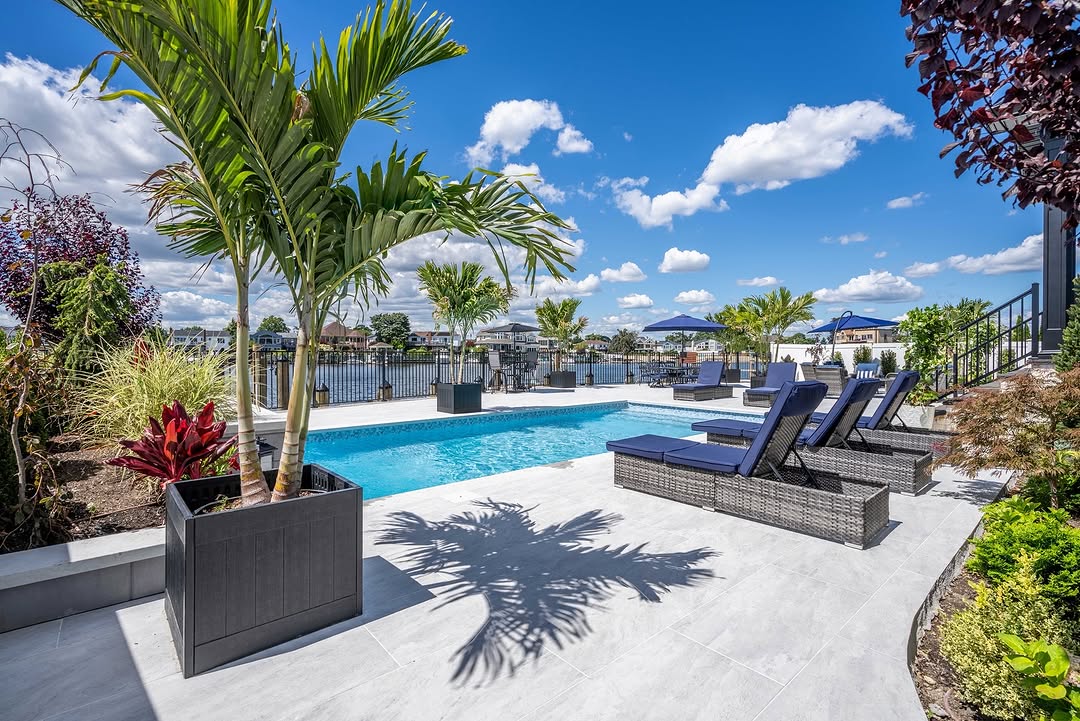
Commercial Projects:
For project managers, Italian porcelain offers predictable performance. Whether specifying hundreds of square feet for a plaza or terrace, the risk of uneven wear is minimized.
FAQs About Italian Porcelain Pavers
Let’s answer your questions about Italian Porcelain.
Are Italian porcelain patio pavers better than natural stone?
Yes. They offer the authentic look of stone without sealing or staining issues. They also resist freeze-thaw damage better than limestone, marble, or travertine.
Do Italian pavers require sealing?
No. Unlike natural stone, porcelain is non-porous and does not need sealing.
Can Italian outdoor pavers handle heavy traffic?
Yes. They are manufactured to resist heavy foot traffic, vehicle loads, and outdoor conditions. This makes them the best choice for both residential and commercial projects.
Why are Italian porcelain pavers more expensive?
The higher cost reflects advanced technology, strict quality control, and sustainable production. While the initial price is higher, the long-term value is greater because replacements and maintenance are rare.
How do Italian porcelain pavers perform in cold climates?
They perform exceptionally well. The high density prevents water absorption, reducing the risk of cracks caused by freeze-thaw cycles.
Are porcelain pavers slip-resistant?
Yes. Outdoor-rated porcelain pavers have textured surfaces designed for slip resistance, even around pools.
How long do Italian porcelain pavers last?
20-50 years with proper installation. It will retain its looks, color, and printing for years to come.
Do Italian porcelain pavers support green building standards?
Yes. Many Italian manufacturers use recycled materials and meet European sustainability guidelines, helping projects align with LEED and other certifications.
Bottom Line
Italian porcelain pavers are not just another porcelain variant, but it is the highest quality pavers among other paving materials. Unlike other porcelain variants, they offer greater strength, design authenticity, and low maintenance. This makes them the best choice for homeowners who want long-lasting beauty. For those planning a durable, stylish, and future-ready outdoor space, Italian porcelain remains the best choice. NT Pavers, a trusted Italian Porcelain Pavers Supplier in New Jersey, offers premium collections crafted to elevate any landscape design.


